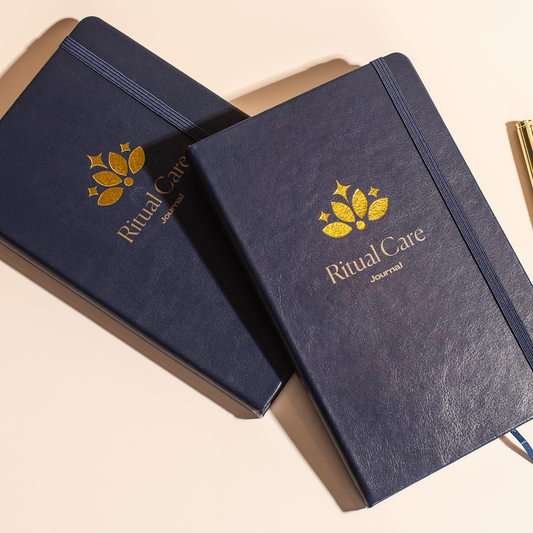As you reflect back on the past year, identify opportunities for taking your emotional health to the next level next year. It’s important to be aware that anytime you set an important goal and actively move toward it, you can come up against resistance, either from yourself or other people. Have you ever set a new goal and then heard your inner voice say, “You can’t do that!” or “You never finish anything!” How about that friend or family member who shoots down your dreams with hurtful comments like “Why would you want to do that?” or “That’s so ridiculous!” Any way you slice it, resistance can bombard you in various forms and this is one reason why over 90 percent of people never actually achieve their goals.
The purpose of setting New Year’s resolutions is to create change. Creating change can require you to stretch beyond your comfort zone and can bring up your biggest fears and limiting beliefs. Having the emotional strength to overcome your own perceived limitations and lack of support is paramount if you want to achieve any goal. It’s important to first focus on doing things that will help strengthen your emotional foundation and make these things part of your daily ritual.
Explore how you can increase your happiness, joy, and fulfillment with the following 10 practices.
To do this, sit upright in your bed and recall the moment you woke that morning. Then briefly review everything you did throughout the day, from activities to conversations to interactions. The whole process should only take about two minutes. By becoming more aware of your thoughts, words, and actions, you can consciously create change.
Whatever your New Year’s goals may be, be sure to nourish yourself by cultivating practices that will optimize your emotional health. Remember, your potential is limitless and with a strong emotional foundation, you can achieve anything.
The purpose of setting New Year’s resolutions is to create change. Creating change can require you to stretch beyond your comfort zone and can bring up your biggest fears and limiting beliefs. Having the emotional strength to overcome your own perceived limitations and lack of support is paramount if you want to achieve any goal. It’s important to first focus on doing things that will help strengthen your emotional foundation and make these things part of your daily ritual.
Explore how you can increase your happiness, joy, and fulfillment with the following 10 practices.
1. Spend Time in Nature
Spending time in nature can help you disconnect from your usual routine and receive a boost of energy, clarity, and gratitude. Can you remember a time when you felt lethargic, but once you got into nature you felt a complete mental, emotional, and physical shift? Nature is a happiness prescription and could provide you with a much-needed perspective shift.2. Keep a Gratitude Journal
Taking the time each day to reflect on the things that you are grateful for can help you maintain a positive outlook on life. When you choose to focus on positive things, such as relationships, good health, having a roof over your head, and the shining sun, you can come closer to a state of pure joy. Spend a few minutes each day to write about one thing you are grateful for and why you are grateful for it. Explore what thoughts can light up feelings of gratitude.3. Meditate
Meditation has been linked with an increase in positive emotions. Time spent in stillness and silence can unplug you from the hustle and bustle of your busy life and invite you inward for a mind-body reset. Spend 15 to 30 minutes in meditation every day and notice how it can help you to gain a new perspective, shift your mood, and even provide you with more energy.4. Surround Yourself with Positive People
Have you ever walked into a room where someone was in a bad mood and felt your energy shift? How about when you’re with people who are complaining about their lives or their jobs? The people you surround yourself with can have an effect on you, either positive or negative. Surrounding yourself with positive people can greatly enhance your ability to maintain cheerfulness.5. Work With a Life Coach
Working with a coach can help you overcome obstacles and limiting beliefs and achieve meaningful results. A coach can hold your highest vision and help you make strides toward achieving your dreams. Having someone to jog the path alongside you, celebrating your wins and keeping you on track is a great way to improve and maintain high levels of emotional health.6. Cultivate a New Hobby
What are you passionate about? What activities make you come alive? Having a hobby can unplug you from responsibilities and connect you to inner happiness. Maybe you enjoy writing, knitting, horseback riding, golfing, gardening, or creating art. Find something that you enjoy doing so much that lose yourself when engaged in it.7. Exercise
Exercise is one of the fastest and most effective ways to positively shift your emotional state. Low energy can contribute to depression. The endorphins that are released during exercise increase your energy levels, boost your mood, and reduce symptoms of stress. Find some form of physical activity that you enjoy doing regularly to maintain your emotional health.8. Review Your Day Each Night
Recapitulation is a process of reviewing your day just prior to going to sleep each night. The purpose of this exercise is to become keenly aware of how you’re living your life and to observe your own behavior patterns.To do this, sit upright in your bed and recall the moment you woke that morning. Then briefly review everything you did throughout the day, from activities to conversations to interactions. The whole process should only take about two minutes. By becoming more aware of your thoughts, words, and actions, you can consciously create change.
9. Declutter Your Environment
It’s been said that the outer world is a reflection of what’s inside and vice-versa. Having a clutter-free, organized environment can lead to clarity of mind and relaxation. Take time each day to put things back in their place when you’re done using them, file paperwork in a desk, tidy up living spaces, and put away clothes. Watch how your emotional state improves. If you’re interested in more ideas on how to declutter, check out Marie Kondo’s The Life-Changing Magic of Tidying Up: The Japanese Art of Decluttering and Organizing.10. Practice Forgiveness
One of the biggest sources of emotional toxicity is holding onto grievances toward self and others. No one is perfect. Many people resist forgiveness because they cannot conceive of letting the other person off the hook. Forgiveness is not about approving a particular behavior; instead, it is about cultivating peace. The ancient Hawaiian practice of forgiveness called Ho’Oponopono is a simple 4-step process that will help you effectively practice a process of forgiveness.Whatever your New Year’s goals may be, be sure to nourish yourself by cultivating practices that will optimize your emotional health. Remember, your potential is limitless and with a strong emotional foundation, you can achieve anything.






















